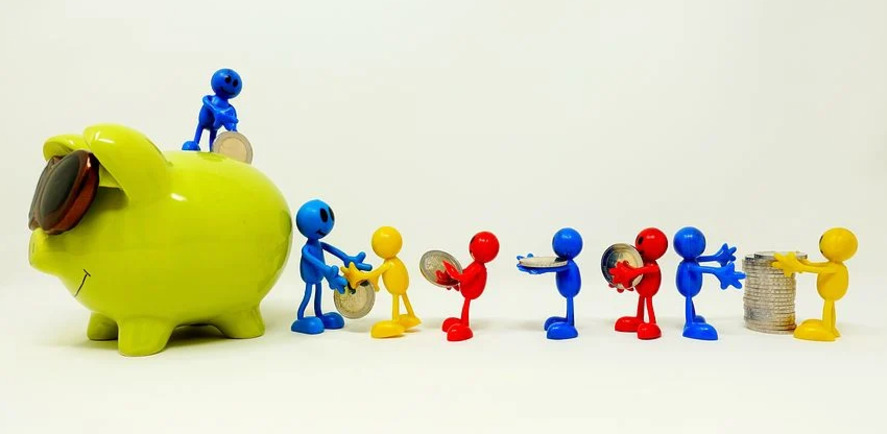What is Personal Finance?
Personal finances is a category of finance and it includes managing your money as well as resources. Aspects of personal finances includes saving, investing, budgeting; retirement, tax and estate planning. It's all about meeting your long and short term financial goals.
Personal finances help you to achieve financial independence, manage income effectively, increase cash flow, stay off debts and grow wealth. Decision making is crucial when it comes to the financial institution you utilize, hence why there's a need to check out reviews on UK Collected.Reviews.
5 Steps to managing personal finances
Cut your coat according to your cloth:
Learn to live within your means, be it a trip or wedding finances; moderation and self-control are key to achieving financial success. Create a budget before the next paycheck comes; you must account for every single pound you earned, whether spent, saved or invested. This is the first step to great financial management.
Budgeting:
Getting a strong hold of your personal finances and aiming for financial freedom starts with budgeting. A budget helps you to create a plan of how and what you spend your money on, thus giving your finances meaning. To create one, identify the sources of income, your needs and wants, the amount of money to save and invest.
Saving:
To achieve financial independence, you need to set aside a particular amount of money for saving for things such as an emergency, a new house, wedding finances, etc. At least 20% of your monthly income should be saved.
Investments:
this is necessary to achieving one's financial goals. Investing is using your money or savings to buy an asset with the hope that it will generate income, or it will appreciate and increase the value of your asset over a period of time. The returns gotten can in turn be saved or reinvested. One can invest in stocks, shares, bonds or real estate.
Take a personal finance class
to boost your personal finance literacy levels, and learn how money works, and managing personal finances.
How to improve my financial situation?
Paying off debts v Saving:
People often ask whether they should pay off their debts or save. Pay off your high interest loans or debts, work towards paying off anything with an interest rate of 8% or more. You can pay off low interest rate loans slowly while saving. Note that your financial freedom is a long term journey.
Set a goal:
Set a goal to ensure that you have a realistic financial goal as this will motivate you towards saving money. Whether you are a low or high income earner, try to save at least 10-20% of your monthly income. Writing a personal financial planning is a great first step.
Reduce Your Expenses:
Reduce expenses to have financial freedom, keeping your expenses reasonable is a must. Spend less, cut costs, save more and build good habits.
Make extra income:
Generate more income to save, spend or invest you need an income and sometimes spending less might not create more wealth for you. Hence, you need a side job to increase your cash flow.
Always save for emergencies:
Setting aside money for an emergency fund will go a long way to offset the effect a medical or family emergency could have on your income. Save at least 3-6 months of living and feeding expenses in a high interest account.
Budgeting
A budget is a plan or account of how your money earned will be spent over a given period of time. Basically, it's an estimation of your income and expenses. To create one, identify the sources of income, your needs and wants, the amount of money to save and invest.
Easy tips to Budgeting
Wants V Needs:
Your needs are your essential expenses, things you need to survive i.e. your essentials, while wants are the luxuries you desire, meaning that you can live without them. When budgeting, it is important to distinguish between your wants and needs.
Account to know where your money goes:
Review your previous monthly expenses to have an estimate of your average monthly expenses. Calculate your fixed and variable expenses. This will help you know what you need to cut down on and the exact money to budget for expenses, saving and investments.
Draw up a realistic plan:
Review it monthly to ensure that you are following through. Also, give a little room for change every month.
Include in your budget the payment of debts and savings:
These two should be deducted from the income before any expenses. Do not forget to budget for emergency funds.
Track the progress:
Have a look at the progress you are making so far since the start of your budgeting journey. Also, remember to cut yourself some slack, as things might not be perfect at first, but will gradually get better as you follow through.
Saving money or investing money?
To convert money into wealth, you need to save and invest. Saving is income not spent, money kept aside in a safe account e.g. a deposit account, while Investing is using your money or savings to buy an asset or item with the hope that it will generate income, or appreciate and increase the value of your asset over a period of time.
A major difference between savings and investments is that the risk is higher in the latter than the former. Even though both are very important for your financial success, you need to know when investing or saving money is best.
Tips to saving money better
Pay yourself first:
Immediately after you receive your earnings, the first thing to do is to take out a certain percentage to save such as 10 or 15%. The rule of thumb is to save first before paying for expenses.
Multiple saving accounts:
You could have different savings accounts for different purposes. For instance, you could have an emergency savings fund, a savings account for living and feeding expenses, another for the kid’s school fees, one for investments and so on.
Automatic transfers:
From your existing account to a savings or investing account could also help you be disciplined in your savings journey and make it a lifestyle. You could give instructions to your bank to remove a fixed amount of money monthly from your checking account to a savings account or you could use apps such as Plum, and Tandem that automatically puts aside money for savings based on an algorithm. Once your paycheck comes in, it automatically removes the specified percentage and transfers it to the savings account. It also helps to reach your savings goal.
Save little amounts as well as big amounts:
£5 or £10 is not too little to save, you could put this little amount daily in a small safe at home and it will help take care of little family expenses.
Basic Tips to investment
Investments like we stated earlier require you to use your money in buying an asset or property in the hopes that it will generate future income for you. Such assets could be shares, stocks, bonds or real property.
Draw up a plan:
One rule of investing activities is that you do not invest in something you do not understand the ins and out of. Ask yourself questions such as "how much do you plan to invest? Why are you investing? Do you have sufficient information about the investment option you decided upon? What is the time frame of the investment? How much return are you expecting and the most important, what are the risks involved?" Investment involves risk, so choose wisely the risk you can handle. Higher risks bring higher returns and lower risks, lower returns.
Avoid investing all your money:
Keep some money for an emergency fund, do not invest all your cash. A smart investor will set aside money in a savings account to cover emergencies and unexpected expenses.
Diversify: like the phrase goes, do not keep all your eggs in one basket. Spread your money in various sectors of investment,
from stocks to shares to bonds to agricultural products to real property. Avoid high risk investments unless you understand them and have built up money by taking on low and medium-risk investments.
Invest periodically:
Do not invest all your savings or money at once. Instead make regular investments monthly with the same amount of money. Also think of long term investments and not the quick-money schemes out there. If you are unsure of the investment you need, get financial help or advice.
Review periodically:
Review and keep a track of your investing activities, capital amount, returns earned, and risks involved. This can help you adjust your savings in case you need to invest more in order to reach your goal.
Cryptocurrency
This is the rave of the moment, as more people are using, and learning about it. However, it requires a deeper look to understand how cryptocurrencies work, what coins to invest in, and how to make money with cryptocurrency.
Wrapping Up
Before making investment decisions, there's a need to talk to a finance professional from a reputable finance institution. To get the best one, search for reviews on different companies e.g. WorldRemit, and learn all about them based on people's experiences, before committing to them. Remember your personal finances and how you handle them are key to financial freedom. Take a step in the right direction today.






